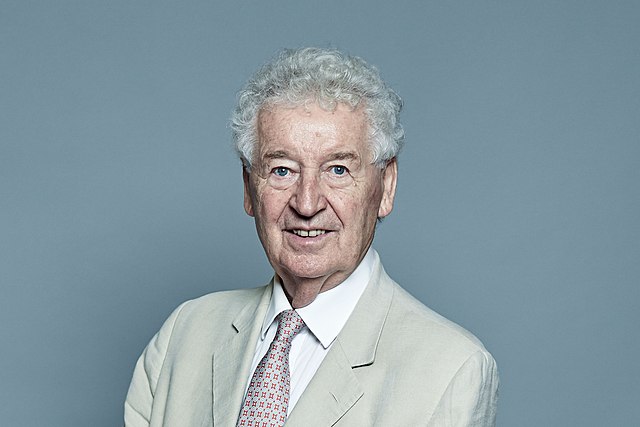The new chairman of the UK’s principal climate science denier campaign group holds investments in a number of fossil fuel companies, including those building controversial oil and gas pipelines in Canada.
Labour peer Lord Bernard Donoughue was handed the reins of the climate science denying Global Warming Policy Foundation (GWPF) after former Chancellor Nigel Lawson stepped down earlier this month.
The GWPF has provided a platform to opponents of action on climate change for nearly 10 years.
Donoughue’s 30 shareholdings include four investment funds that list BP and Shell in their top five holdings, while another fund has shares in ExxonMobil, the House of Lords’ latest Register of Interests shows.
A further fund invests heavily in oil and gas infrastructure in the US and Canada, including the controversial Kinder Morgan and Keystone XL pipelines. The pipelines carry oil from the Alberta tar sands and have faced strong resistance from local indigenous communities in recent years.
Read more about Lord Donoughue in DeSmog’s Disinformation Database
Until 2015, Donoughue’s entry in the Register of Interests also included direct shares in Premier Oil and Scottish and Southern Energy (SSE).
Donoughue has repeatedly cast doubt on the importance of tackling climate change, calling efforts to reduce emissions “virtue signalling” and the climate change movement “evangelical.”
In an article Donoughue co-wrote in 2015 with the Bishop of Chester, Peter Forster, he considered Pope Francis “naïve” in his view on climate change and claimed that “to regard economic growth as somehow evil, and fossil fuels as pollutants, will serve only to increase the very poverty that he seeks to reduce.”
Donoughue wrote in 2016 that he accepted “carbon emissions do have a relationship with global warming” but argued the “degree of this sensitivity has not been conclusively established.” In the same article, he backed “the extraction of cheap and relatively clean shale gas”, not “silly and expensive windmills.”
Over 15 months in 2016 and 2017, Donoughue submitted a total of 25 official questions to the government relating to obscure climate models. He was criticised by the then Parliamentary Under Secretary at the Department for Energy and Climate Change, Baroness Verma, for wasting taxpayers’ money. Two other climate science denying politicians, Peter Lilley and David Davies, had also been bombarding the department with questions.
Donoughue did not respond to a request for comment for this story.
Image credit: Chris McAndrew/Wikimedia/CC BY 3.0
Subscribe to our newsletter
Stay up to date with DeSmog news and alerts






